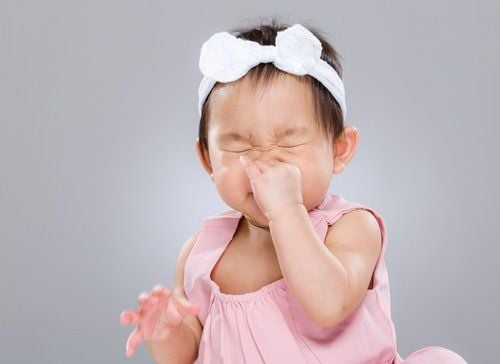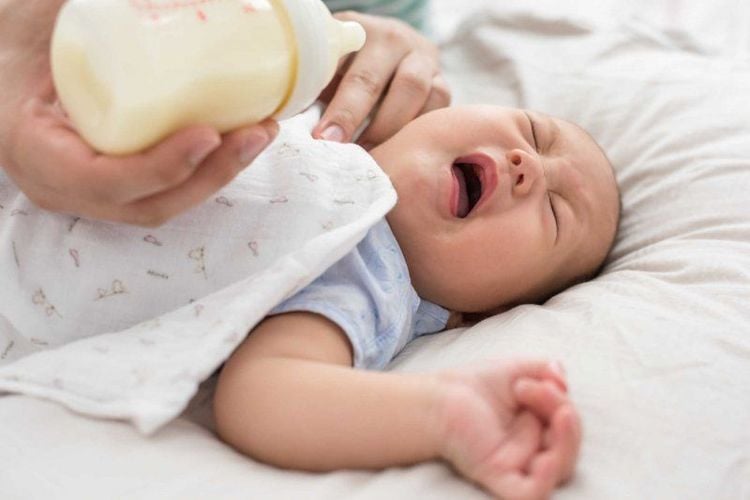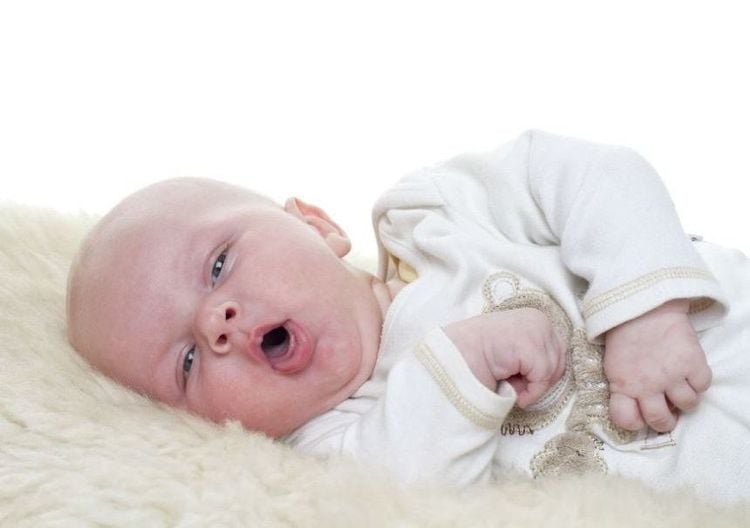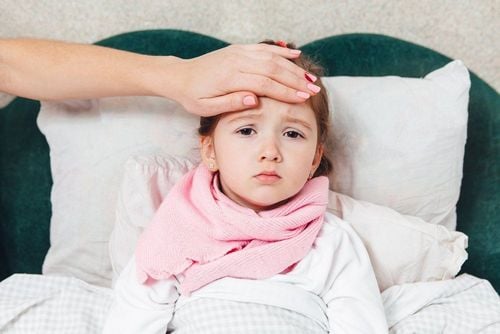This is an automatically translated article.
The mentality of a parent is always worrying about their children, this is normal and common in life. In fact, children's resistance is still very weak, on the other hand, some diseases do not have obvious symptoms, so parents often wonder if their children are sick or not? So in which case parents need to call the doctor or medical emergency.
Equipping yourself with child care knowledge will never be superfluous. Because of the fact that some diseases do not have obvious symptoms, if any, they are very vague, making parents worry about when to take their children to see a doctor. Based on some of the characteristics in the following article, parents should consider whether to take their child to the doctor or not?
1. Personality
If the baby's personality seems to be the same as usual: still playful, happy and feeding well then this is a sign parents can rest assured that the baby is not seriously ill. If a child has a runny nose but is still smiling, it is usually not very sick compared to a child with a runny nose and lethargy, showing signs of fatigue.
Therefore, whenever you see a child lethargic, tired, or fussy compared to usual, parents should take note and consult the child's doctor immediately.

Trẻ có dấu hiệu sổ mũi kèm mệt mỏi cần được gặp bác sĩ
2. Unusual crying sound
If your baby suddenly starts crying more than usual and can't calm him down in the usual ways, or if his cry is weak or unusually high-pitched, this could be a sign that he's seriously ill. Also, if your baby doesn't seem happy and doesn't cry but isn't behaving unusually and is hard to wake up, call the doctor to check on your baby's well-being. Some diseases that are detected early will provide a better chance of treatment for children.
3. Cravings
The child's hunger level will change from day to day. But if hungry, children often eat vigorously and actively. A baby who refuses to breastfeed easily or doesn't like to breastfeed or sucks less can also be a sign of illness. In addition, if you notice that your child is spitting more than usual, exerting more effort, or if the saliva is green, call your child's doctor right away for an examination and diagnosis of any medical conditions.

Trẻ bỏ bú có thể là dấu hiệu bất thường
4. Abnormal stools
Young babies, especially breastfed babies, often have very soft or loose stools, and they can have some strange colors, depending on what the mother eats. If stools become looser or watery, your child may have diarrhea.
Monitor bowel movements and watch for recurrent diarrhea? Make sure to breastfeed or bottle-feed your baby often so he or she doesn't become dehydrated. Young children should be changed diapers an average of about 6 times per day.
Also, if your child looks lethargic and stops having bowel movements or begins to have small, hard, dry stools or stools that are streaked with blood, mucus, and jelly-like consistency, call your doctor as these are signs. signs suggestive of constipation in children.
5. Difficulty breathing
If the child has shortness of breath or difficulty breathing, seek help immediately. This is a sign of urgent emergency, parents should not hesitate.

Trẻ bị khó thở cần được đưa đến bệnh viện sớm
6. Fever
Although a child's fever is a sign that he or she is sick, a low-grade fever is usually not a cause for concern. However, there are also many cases of children with mild fever but severe illness or high fever but only mild illness. Therefore, monitor fever in combination with other symptoms to determine the stage of the disease.
In case a child under 3 months of age has a fever of 38 degrees Celsius or more, parents should take the baby to a doctor. If an older child has a fever but other danger signs are present, observe the child for a day to look for other symptoms such as loss of appetite, cough, signs of ear pain, unusual fussiness. or drowsiness, drowsiness, vomiting or diarrhea. If any of these symptoms are associated with a high fever, take your child to the doctor as soon as possible.
Many parents wonder what temperature is considered high fever in children? According to experts, between 3 months and 6 months of age, the temperature is at least 38.3 degrees Celsius and for babies over 6 months, the temperature is 39.4 degrees Celsius or higher.
Based on the above signs, parents can take their children to the nearest medical facilities for examination and diagnosis. An accurate and timely diagnosis of the disease will provide a better chance of treatment and limit long-term complications.
To prevent diseases that babies often get, parents should pay attention to nutrition to improve children's resistance. At the same time, add supporting foods containing lysine, essential micro-minerals and vitamins such as zinc, chromium, selenium, B vitamins,... snacks and less digestive problems.
Parents can learn more:
Why do you need to supplement Lysine for your baby?
The role of zinc - Guidelines for reasonable zinc supplementation
Please visit the website Vinmec.com regularly and update useful information to take care of your baby and family.
Reference source: babycenter.com













